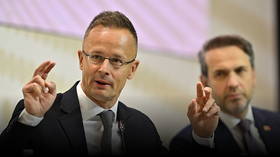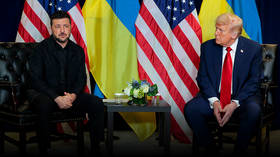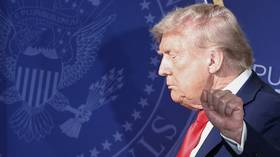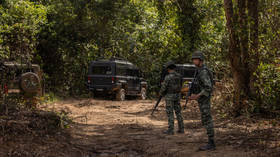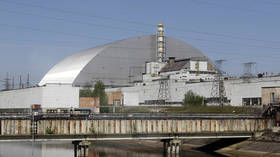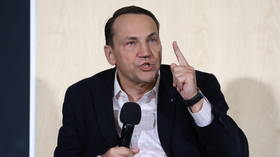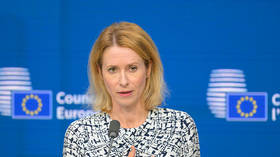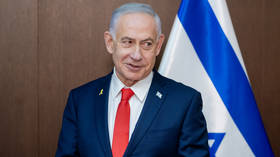‘Ukraine truce depends only on political will from both sides’
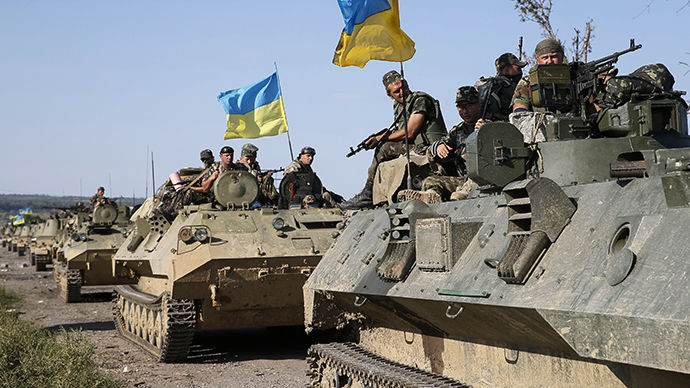
As the ceasefire in Ukraine gets off to a shaky start, the only way to rebuild the billions of dollars of damage in the nation's east is for the EU and Russia to work together, Lode Vanoust, former MP and deputy speaker of the Belgium parliament, told RT.
RT:First off, Kiev has now agreed to what
appears to be a major concession, decentralization of power,
which wasn’t even on the negotiating table a long time ago. Why
is it making this concession?
Lode Vanoust: It is of course always a complex
whole of reasons why these things happen. First of all the total
over-estimation of the Kiev regime of their own military
capacities, and combined with it a complete under-estimation of
the resilience of the resistance by the ethnic Russians in the
east of Ukraine. Then there is also the element that the
right-wing, the extremist elements within the regime, are
becoming more and more of an international embarrassment and
probably they got their orders. Because at this moment the
Ukrainian regime is just doing what its being told by the EU, by
the US, and by NATO. And apparently they have been told to back
off for the moment, but how long it lasts remains to be seen.
RT:Both sides agreed to the ceasefire; that
was the moment that brought great hope and promise around the
region and beyond it to be fair. Just two days in, though, we
have heard about a possible fatality, several injuries, renewed
shelling. Is this truce really under serious threat of falling
through, or are these inevitable hostilities that are going to
continue for a short while after?
LV: I think this is completely inevitable, just given for example
the practical matter of the lack of central command on both
sides. This is inevitable that these things will occur. Whether
that will be a reason for the collapse of this truce – it does
not depend on the incidents themselves. It depends on the
sincerity of both sides to keep the truce. That’s the main
element, a political element. Not whether there are incidents.
There will be incidents, there will be even more but if you look
at history at these kinds of truces, it is not the fact that
there are incidents; it is the political will that’s behind it
whether to keep it or not keep it, which will decide whether a
truce like this will hold.
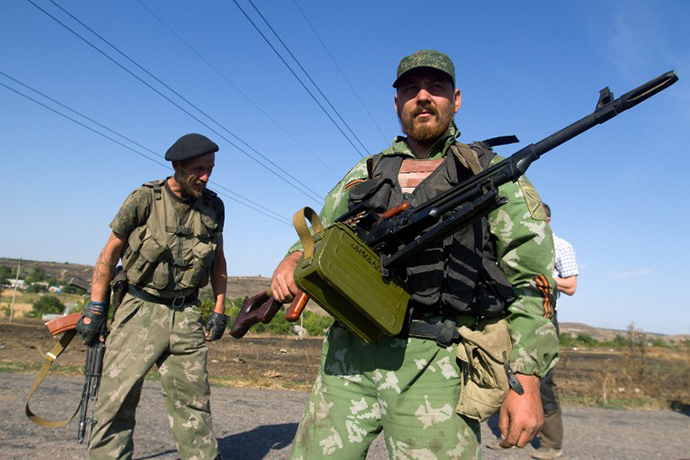
RT:Now prior to this truce, we’ve seen
months of violence that have absolutely devastated this region.
We’re just showing our viewers some recent pictures of the
international airport in Donetsk, a Ukrainian tank rolling
through the grounds there. Now we’re talking about a building
that cost half a billion US dollars to construct. How is Ukraine
going to pay for the very expensive rebuilding of infrastructure
in the region?
LV: Of course Ukraine itself, I mean the regime
in Kiev, is totally incapable of paying for such a rebuilding of
the whole country by the way – not just the east of Ukraine. And
if this will be done in a credible way that’s sustainable, it can
only be done by a common effort from Russia and the EU together.
Any other way will not keep.
RT:Most people involved in this are hoping
the peace plan can somehow progress, that we will see peace
long-term. How do you see that happening? Is there any way this
can be implemented?
LV: Of course nobody can foresee the future, not
even experts like me. You should always take that with a grain of
salt, this kind of analysis, and I really hope that I’m wrong on
this one, but so far it does not look like a very stable
situation. If you see the attitude of NATO, they just see it as
too good an opportunity to revamp their credibility and make the
EU member states build up their defense budgets again. But you
never know; the other side is still Russia. This is not just
Libya or Syria, this is another matter altogether. So you never
know. But so far it does not look that good. But hey, if I’m
seeing I’m wrong on this in a few months’ time, I would be happy
to concede.
The statements, views and opinions expressed in this column are solely those of the author and do not necessarily represent those of RT.
The statements, views and opinions expressed in this column are solely those of the author and do not necessarily represent those of RT.


